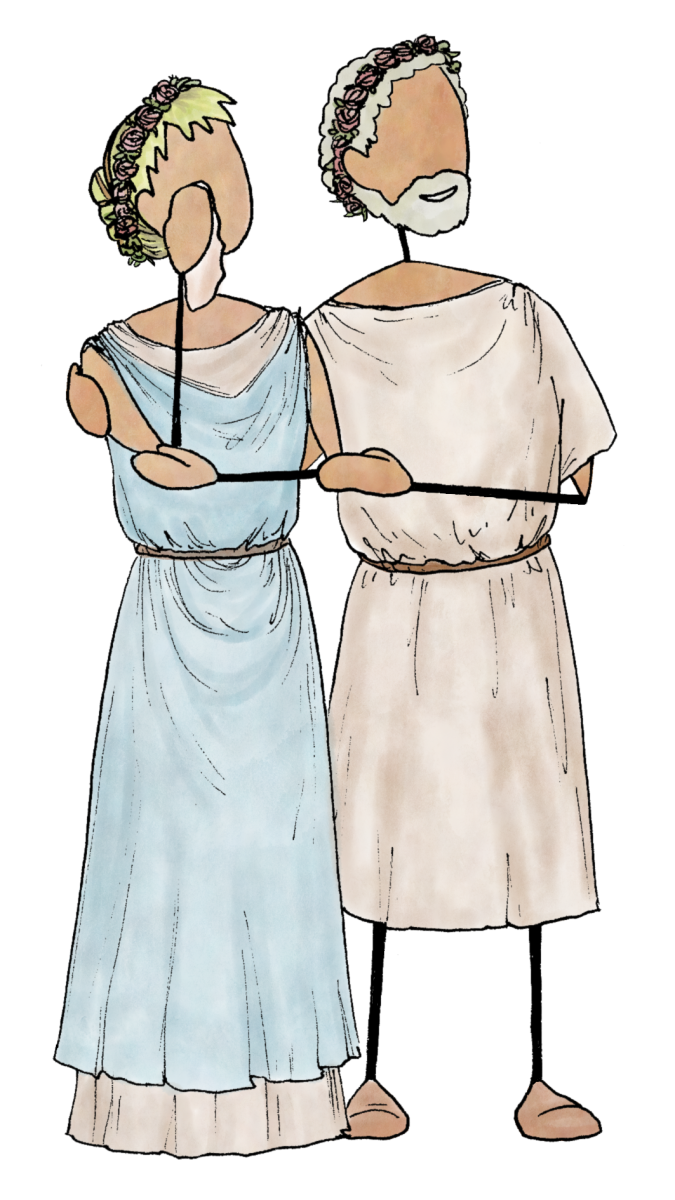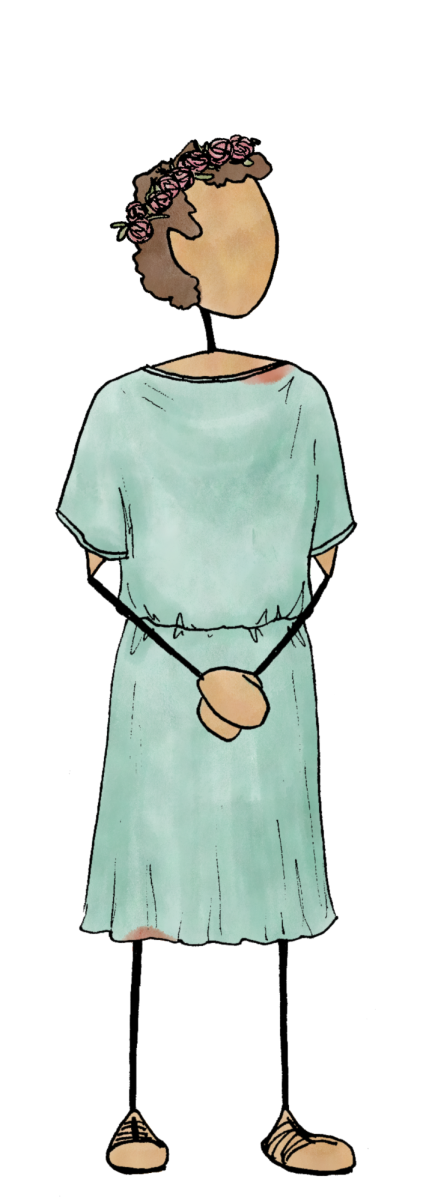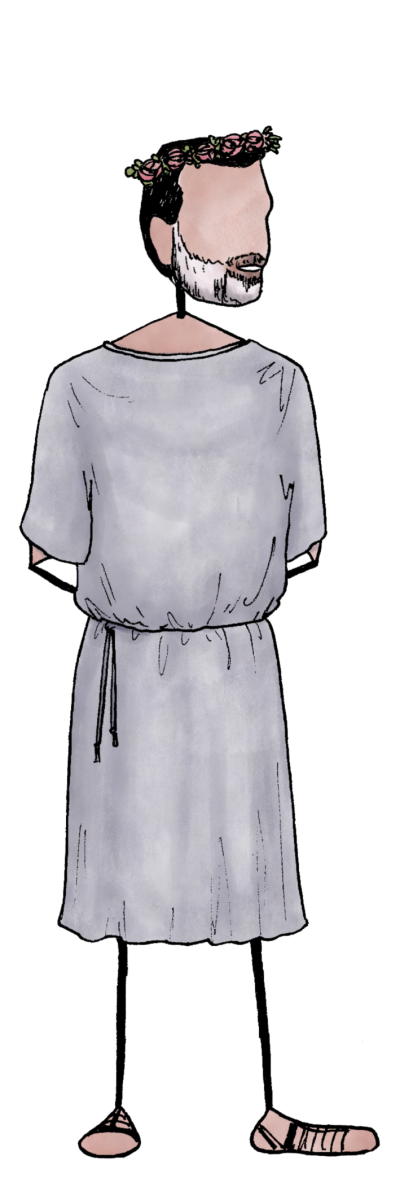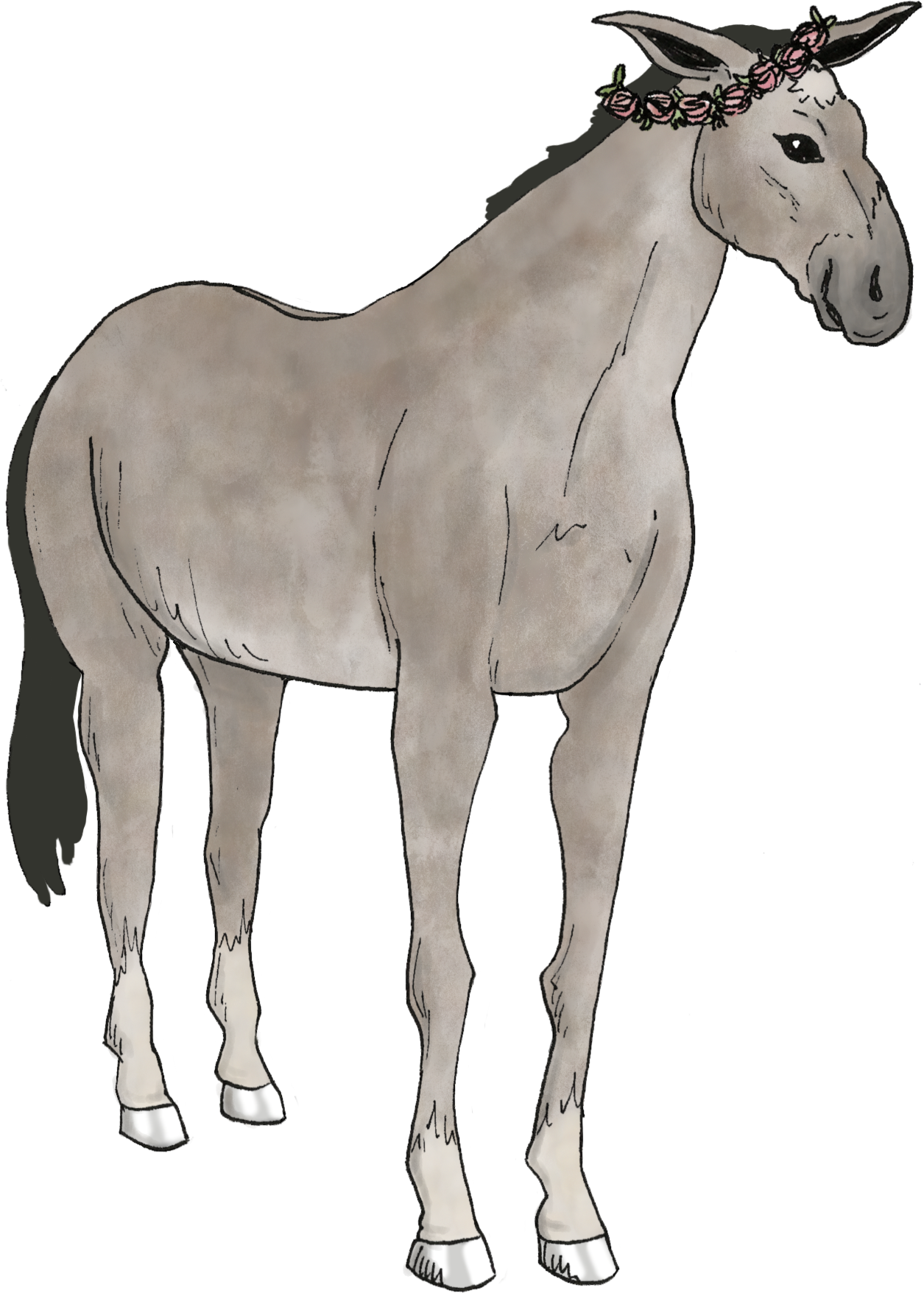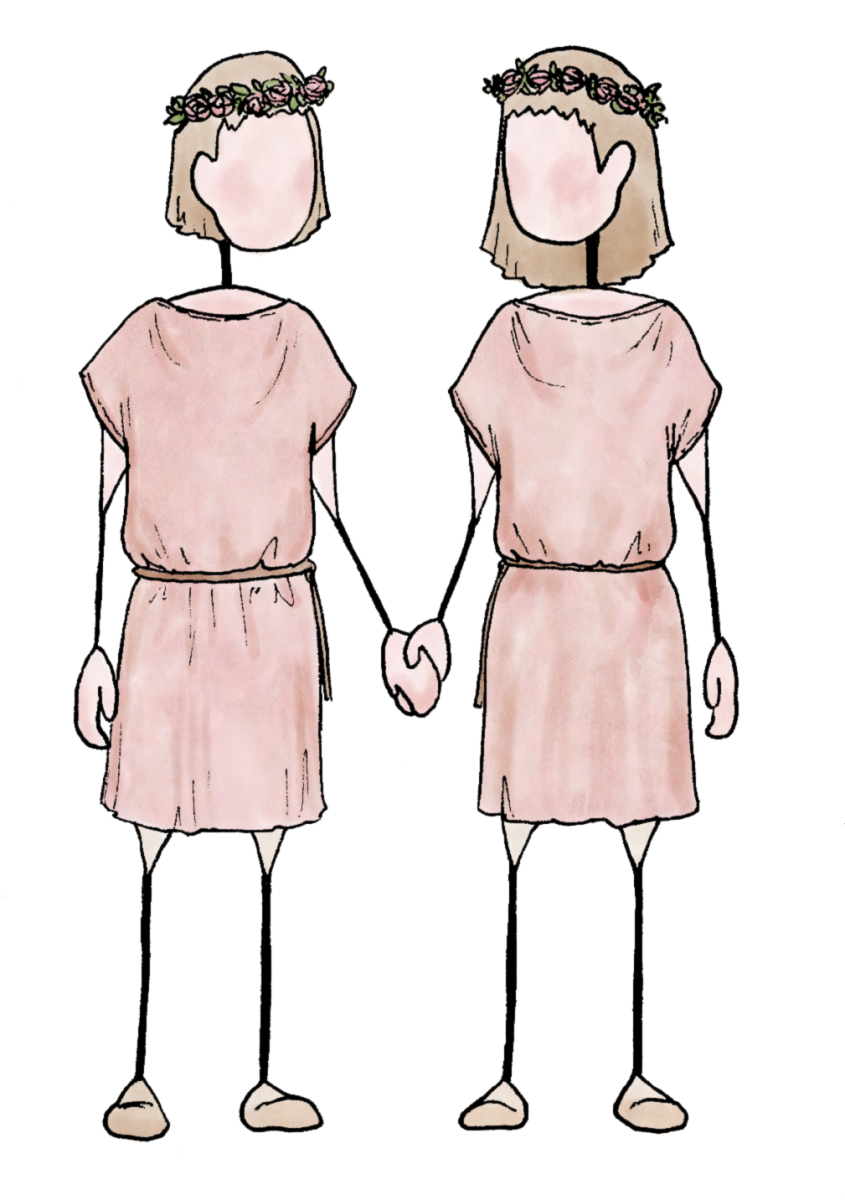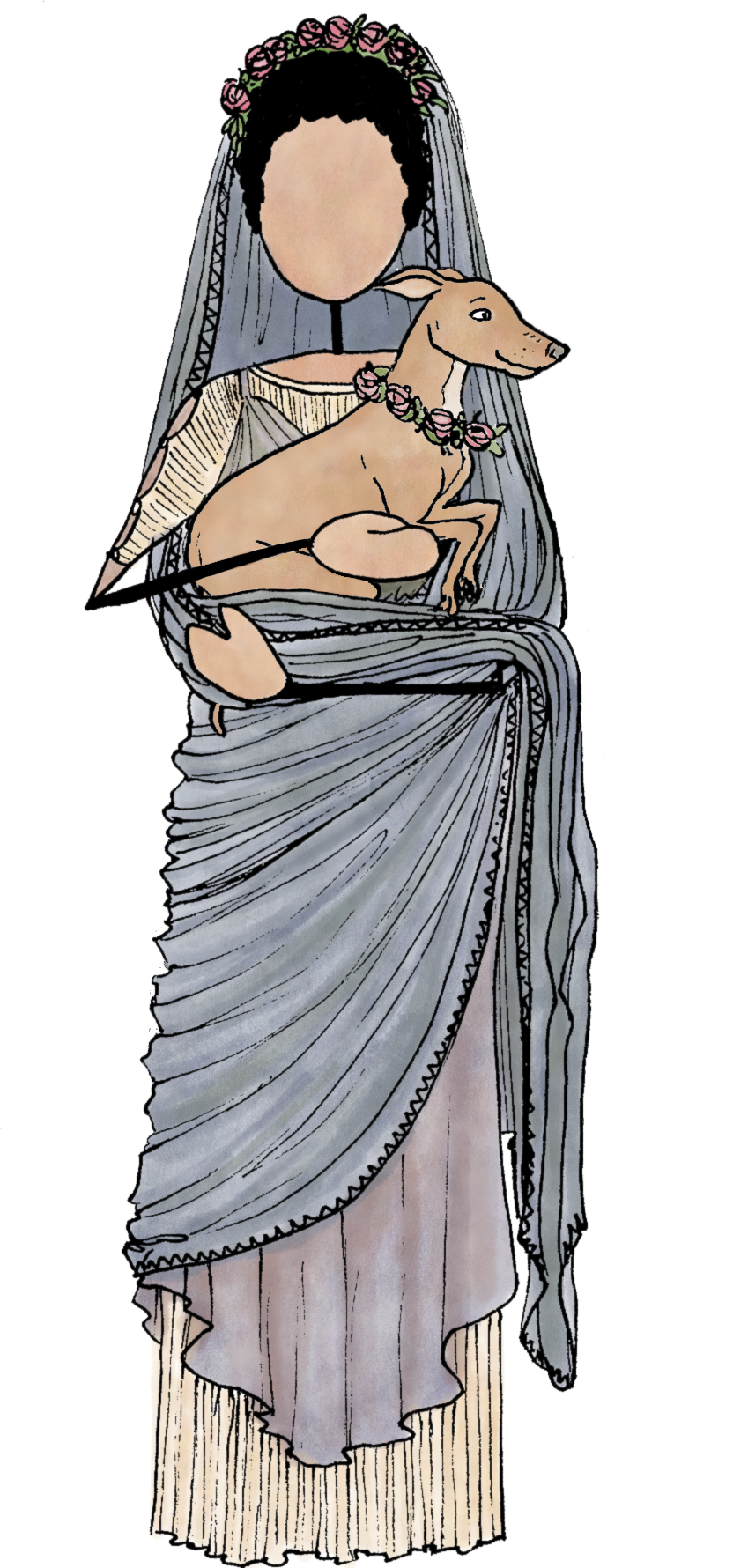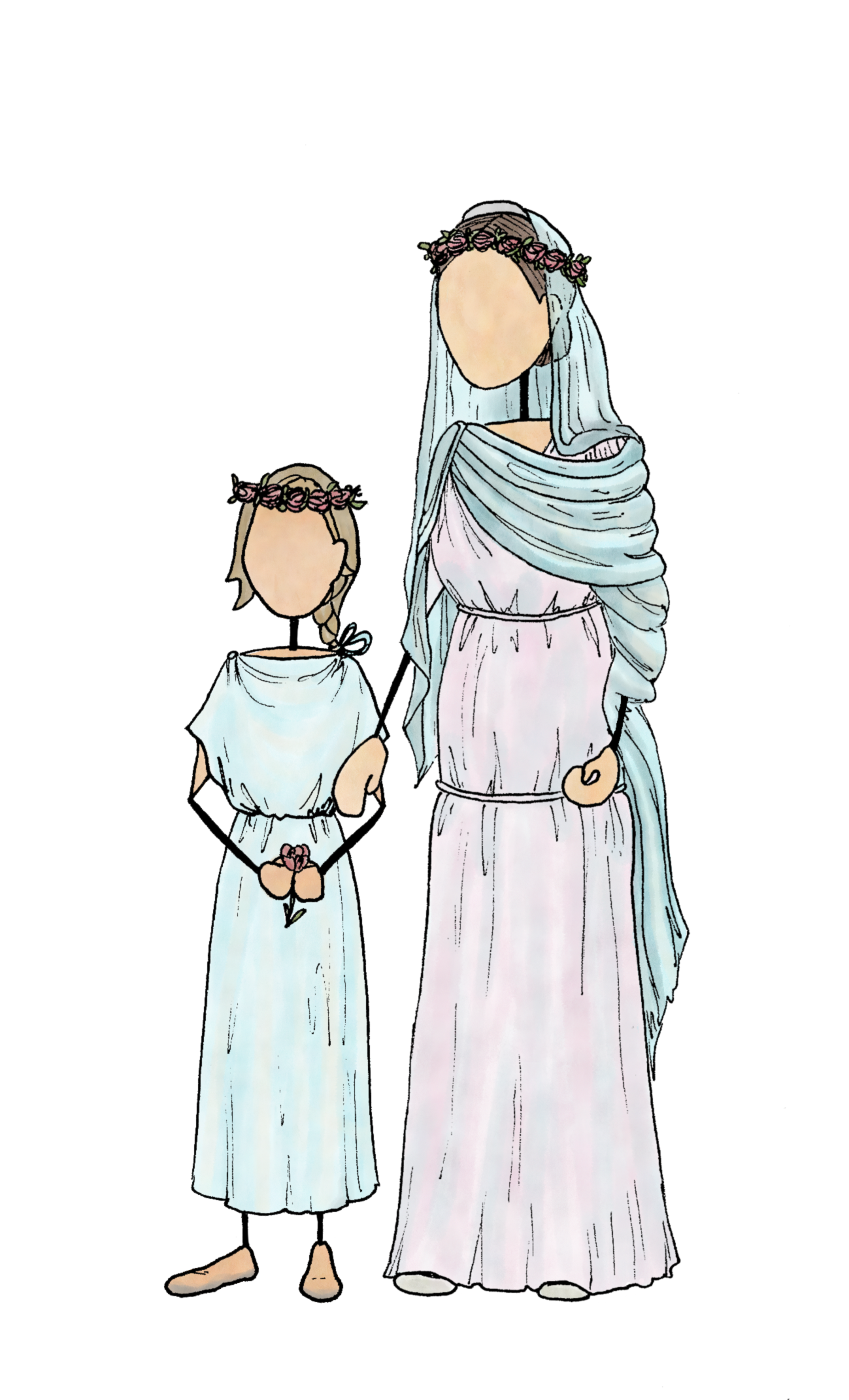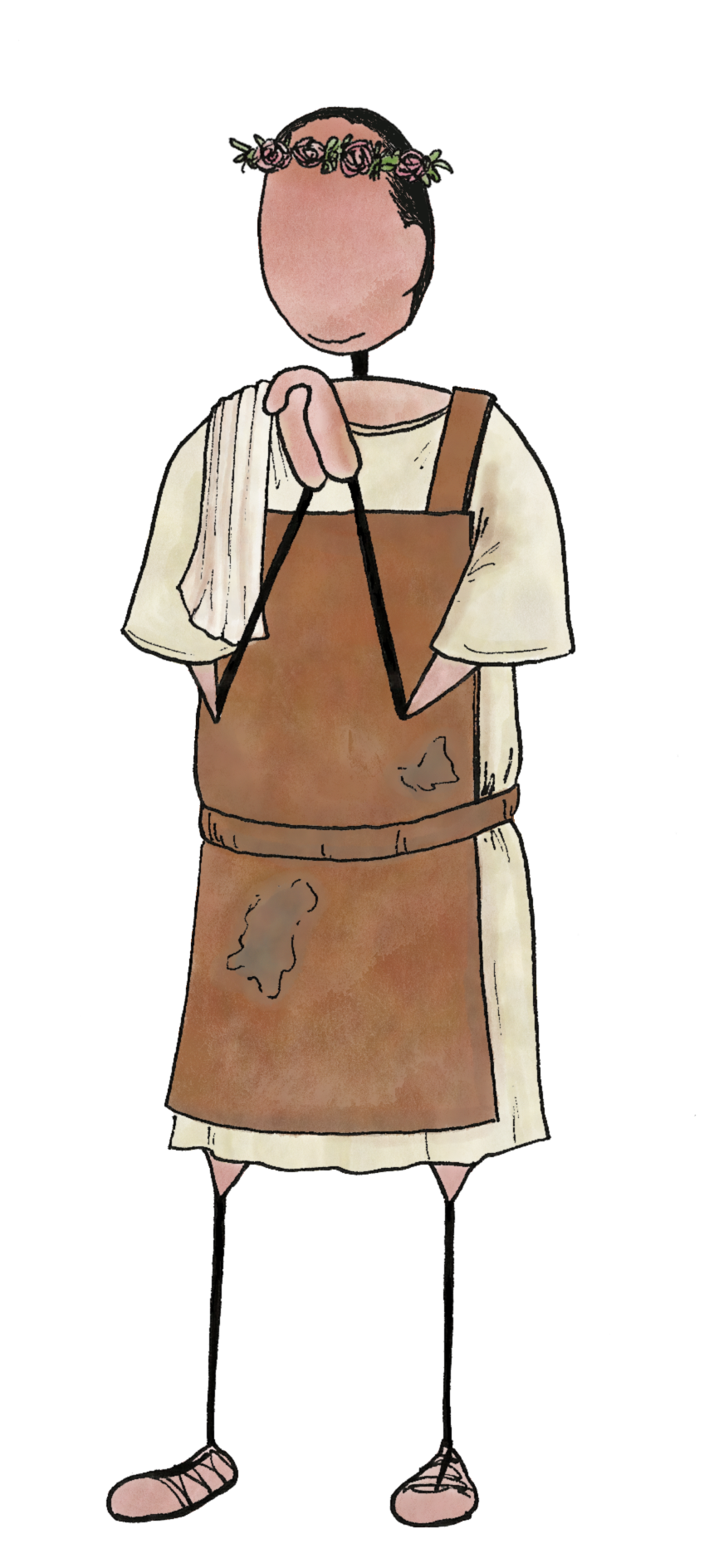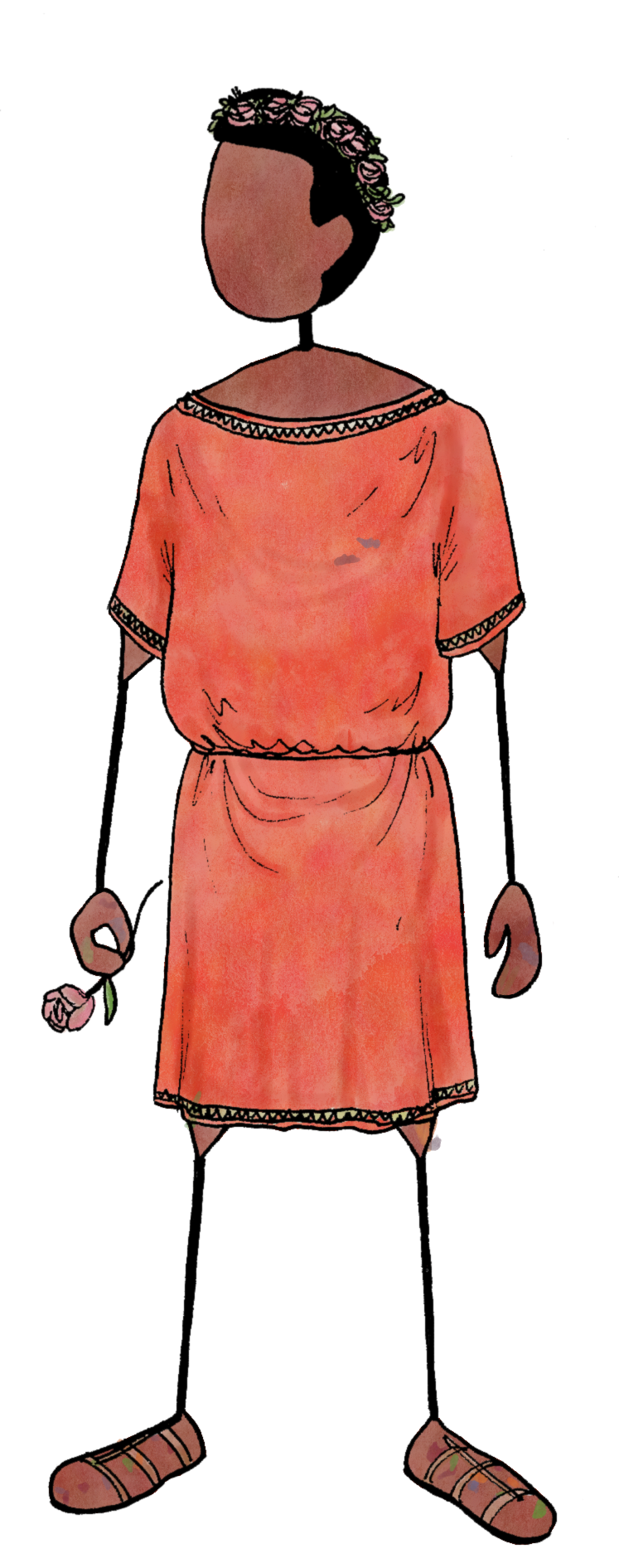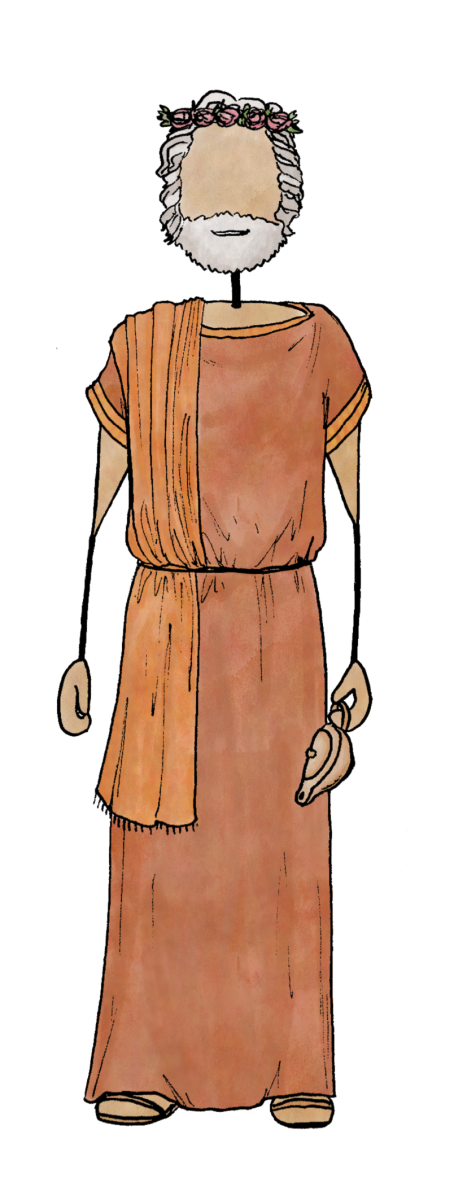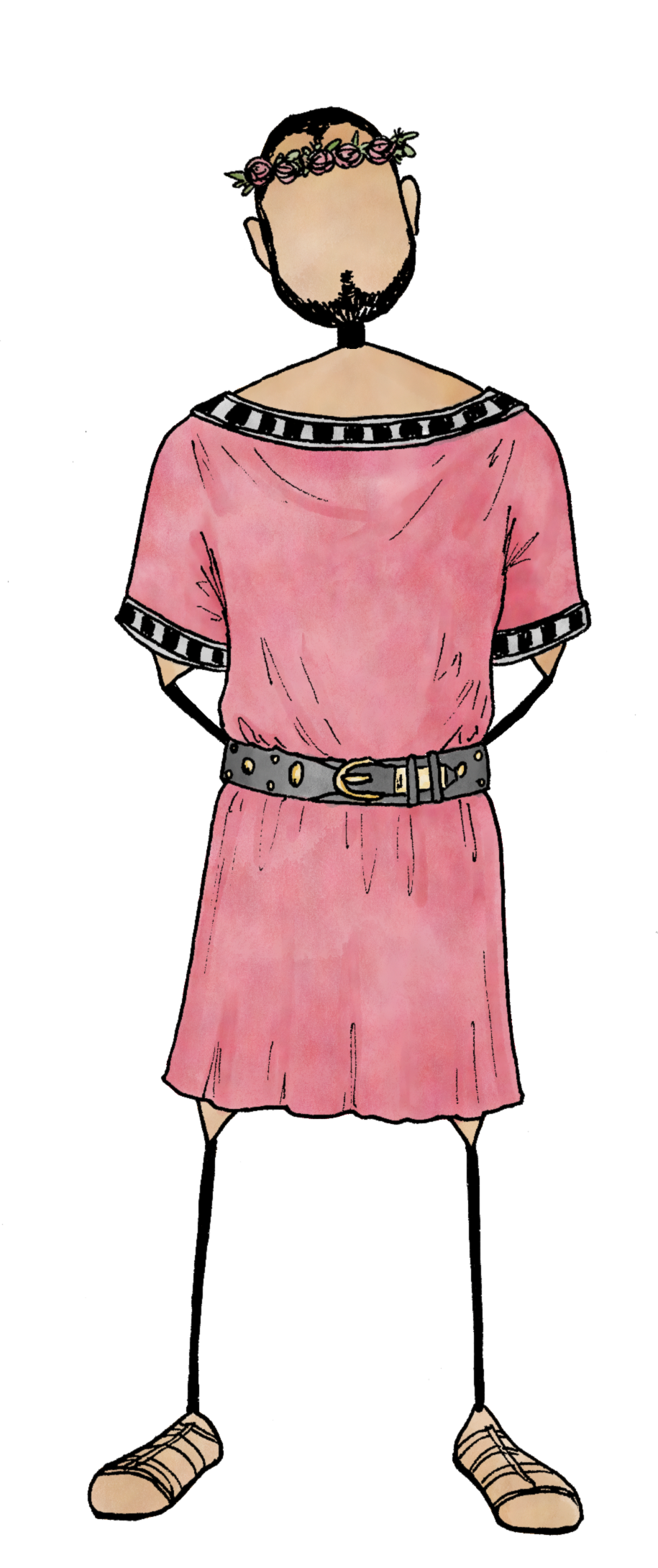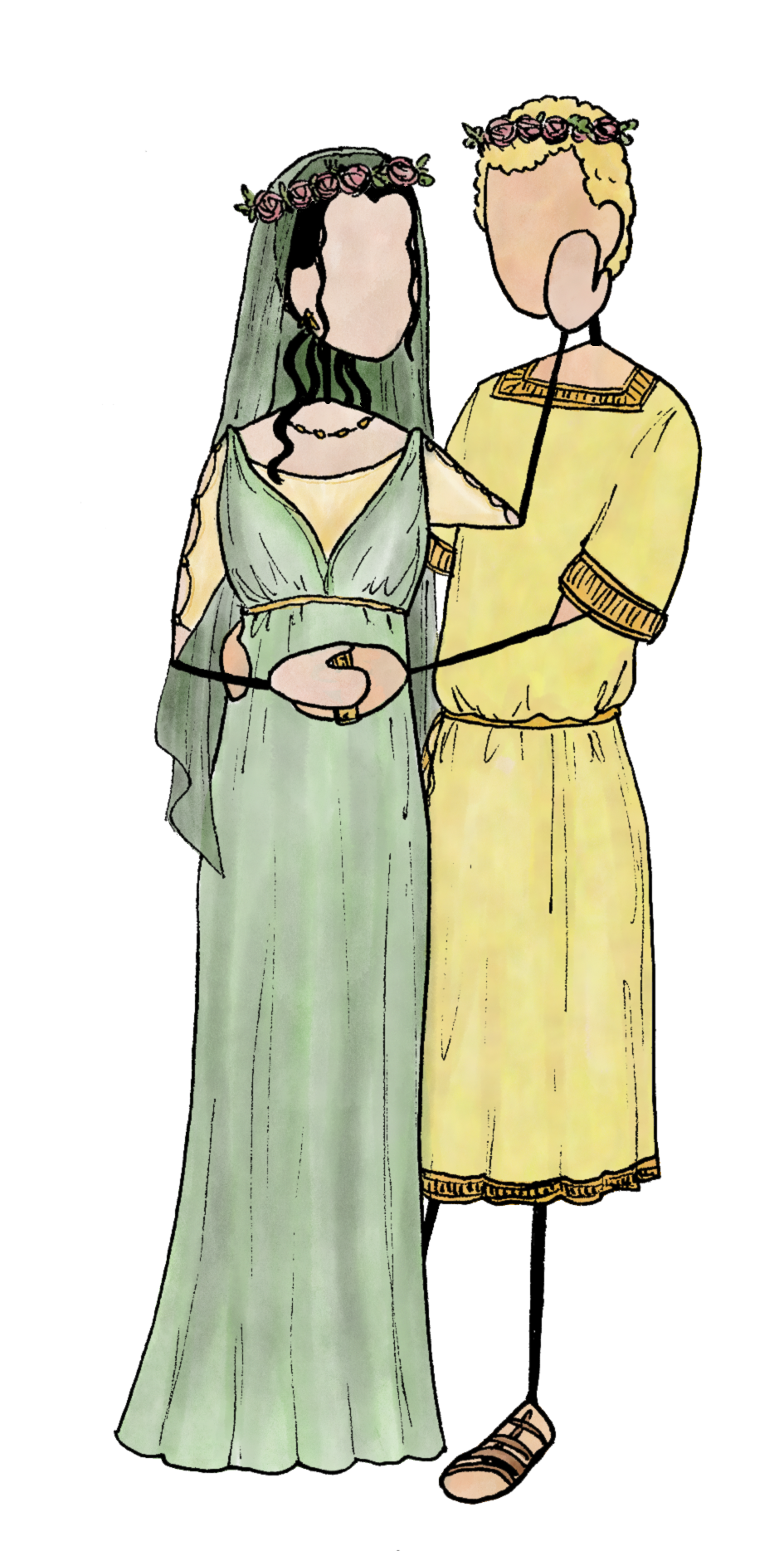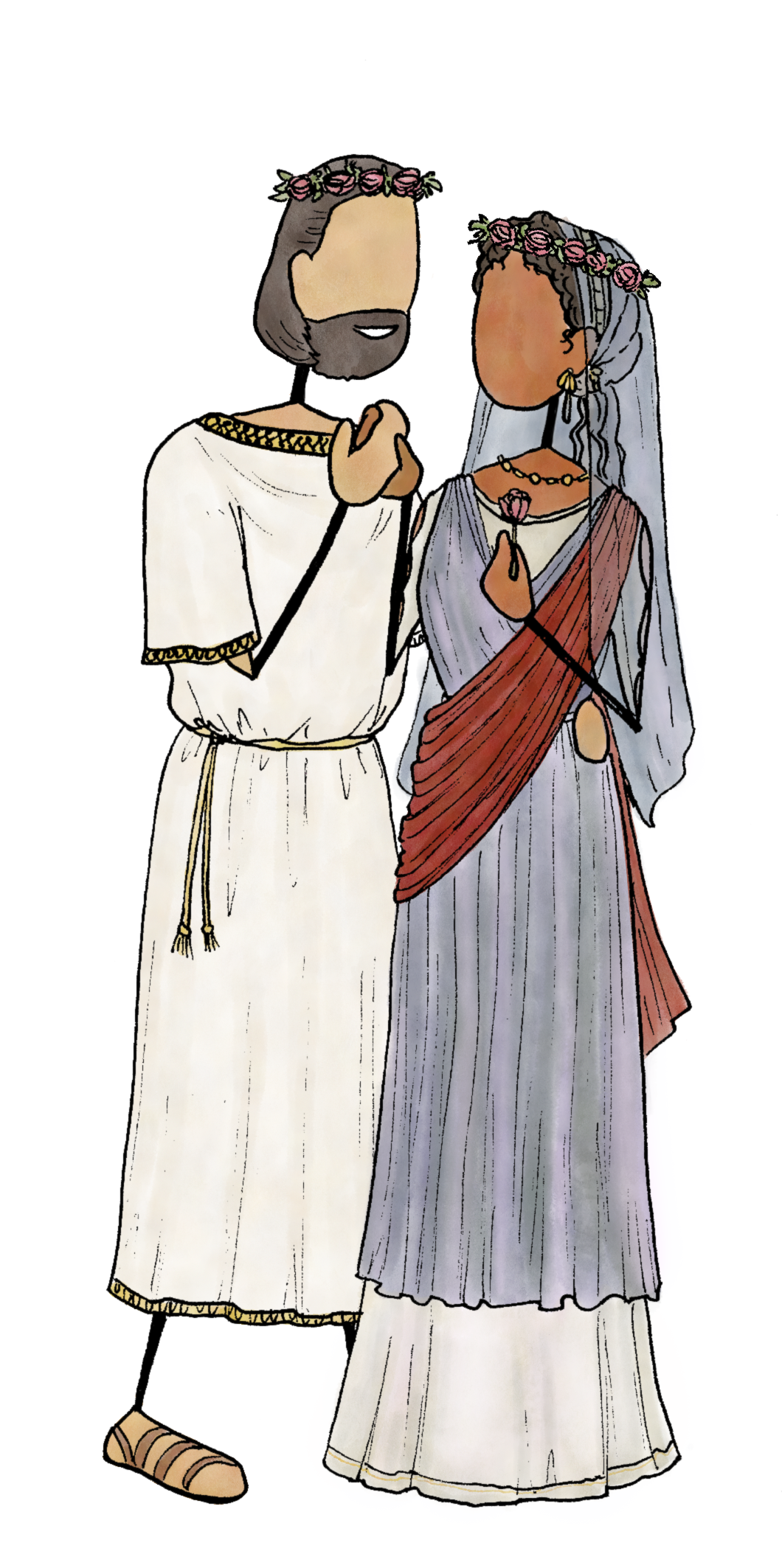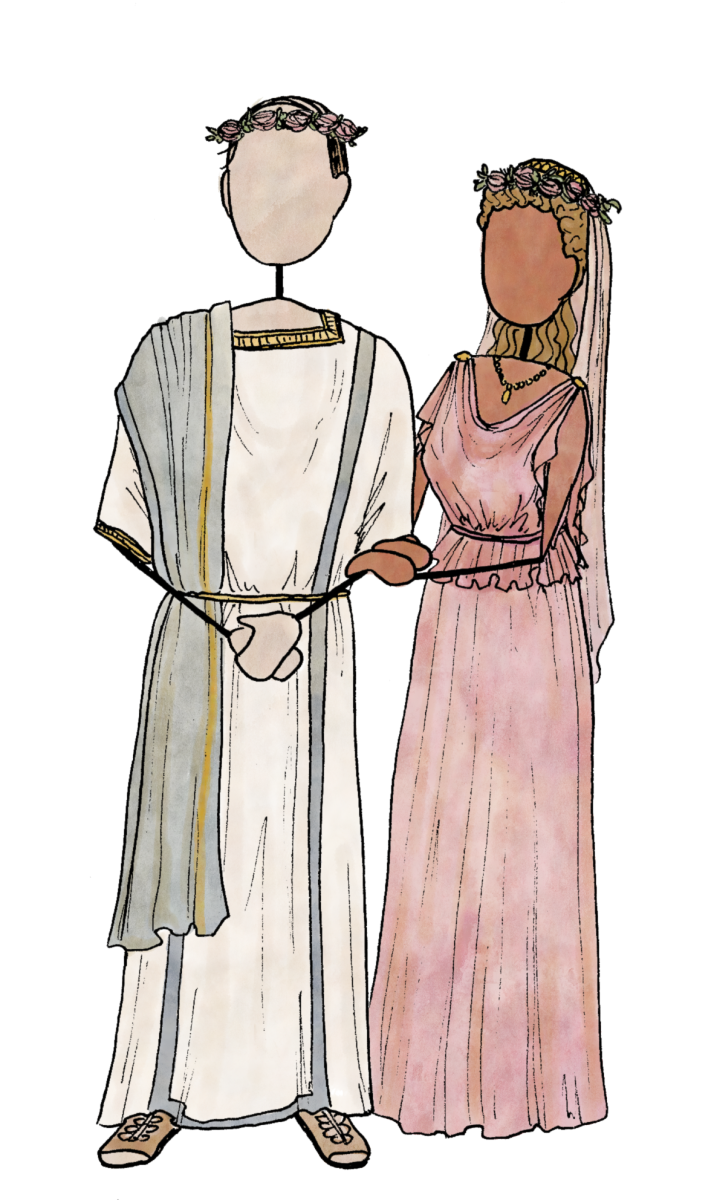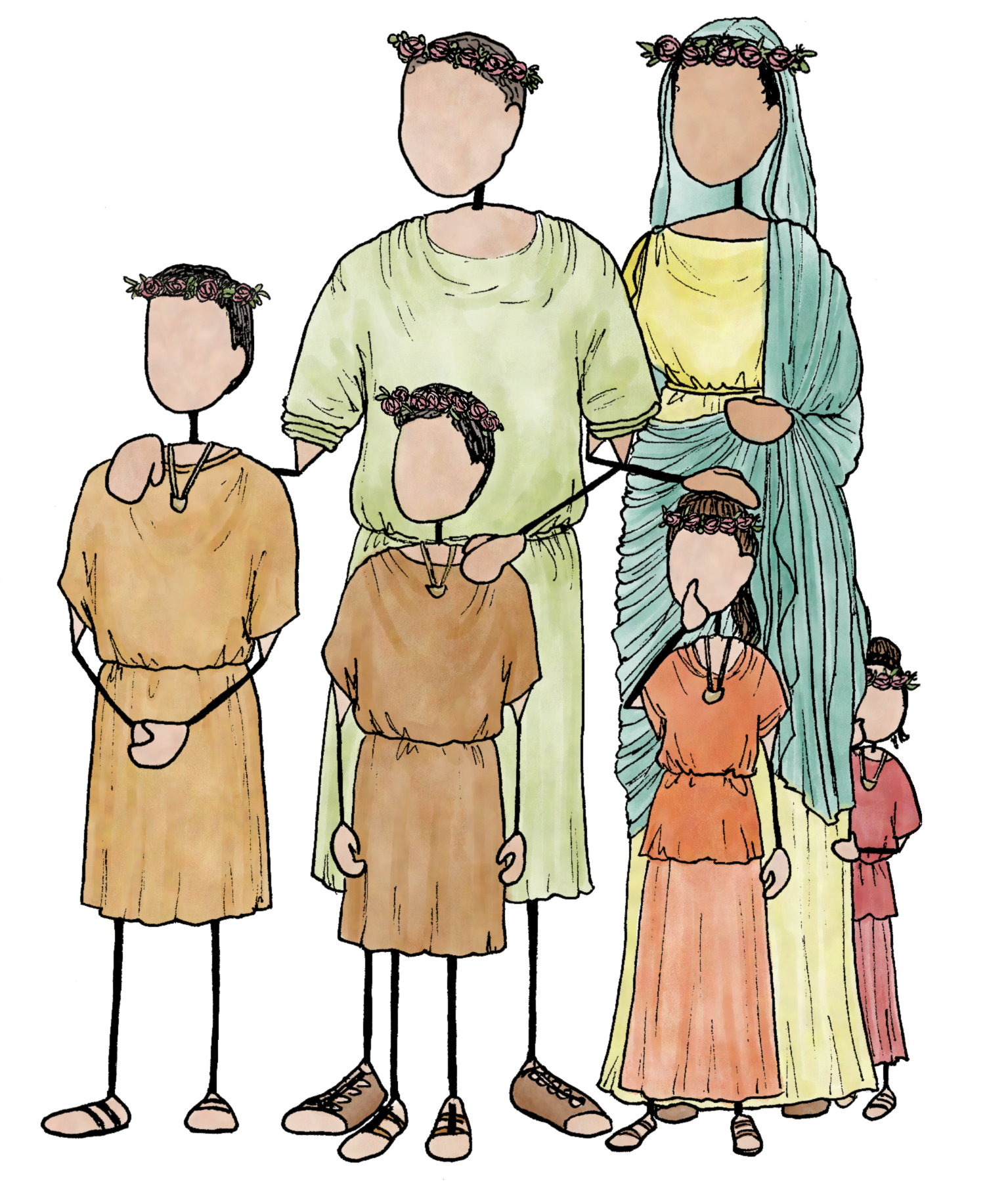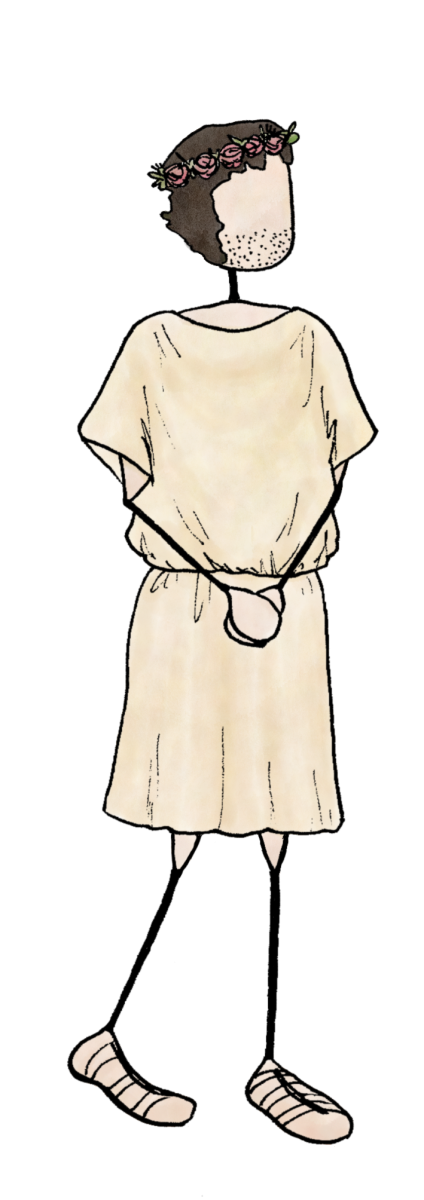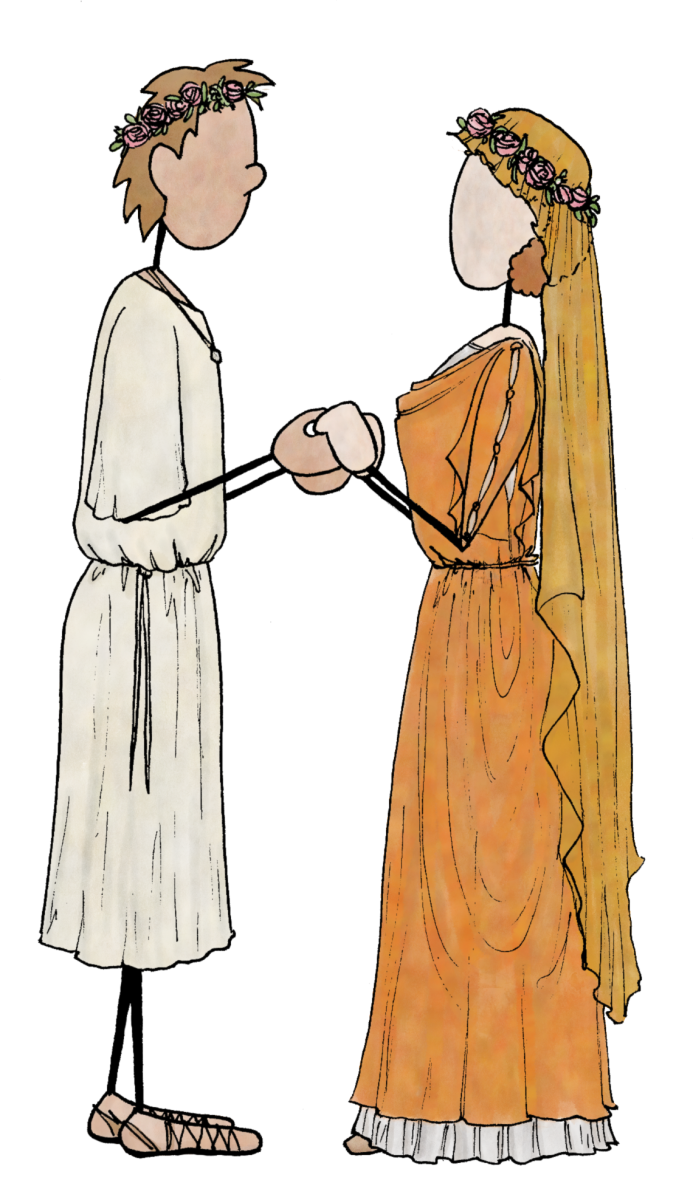|
|
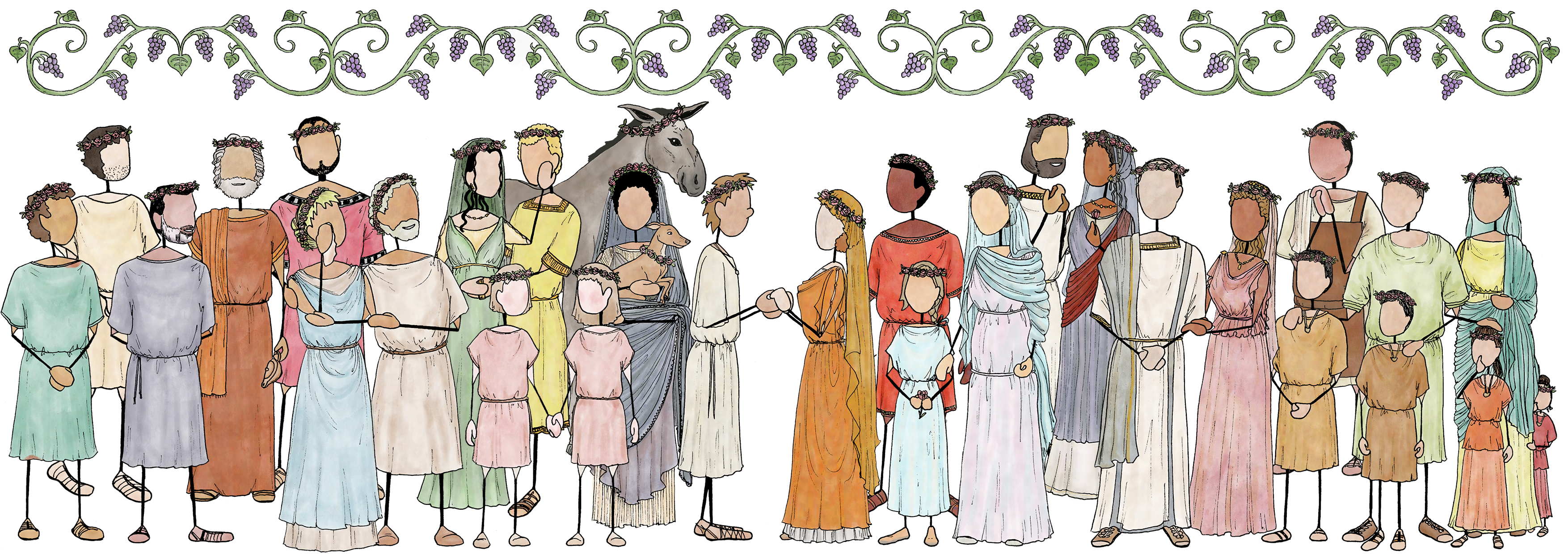
It is the last day of October, still mild but getting dark earlier. Amarantus and Grata have just celebrated a torchlit wedding ceremony in the wine-garden in the presence of all their friends and neighbours. The grapes in the pergola above them are plump and purple and send down their aroma like a gift. The flickering oil-lamps show Amarantus nothing but beaming faces. |
|
|
His mother and Priscus are here. So is Romulus the wine merchant and Astylus the sign writer.
Everyone wears garlands of red and pink roses from Paestum, including Pertinax the dog and Potiscus the mule. The air is heady with their scent. They recline on mats and cushions, as at Amarantus’s birthday. Again, there is no place of honour and only one grade of food. Everyone drinks the finest wine from Crete, Lesbos and Gaza watered to their taste. The courses are brought in on trays carried by the twin slaves Biria and Birius, dressed in pink tunics that match the pink buds in their garlands.
Each dish is a bar snack invented by a member of the familia or insula. First comes moretum, a soft garlic and herb cheese served with pear slices. Pompeia has dubbed it Virgil’s Delight and she stands to recite a passage of his poem about it as the twins serve it up. Valeria Volusa is here with Sophe, who has been persuaded to bathe, comb her hair and put on a new tunic. However she is still barefoot. Valeria’s contribution to the meal was a basket of little birds called ‘fig-eaters’ from her country farmhouse. Coquus rushed to grill them over coals and when he serves them piping hot, some still have sticky birdlime on their feet.
Sophe’s contribution is chopped olive and onion relish on a wedge of white bread. She calls it Builder’s Delight after the snack she once nabbed from a builder’s scaffold. Despite her new demure appearance, she quotes a rude bit of graffiti that makes everyone laugh and call her naughty. Papilio’s contribution is pickled lupins. His favourite artist is reported to have survived on the salty white beans and nothing else for seven years as he painted his great masterpiece. These beans go very well with the red wine from Gaza, which easily holds its own against salty foods.
The mensa secunda consists of almond-stuffed-dates, apples with hazelnuts, fresh figs and peaches in cumin sauce. Amarantus grins and then casts his mind back to a year earlier when newly arrived Grata ate forbidden honey and made him think he had lost everything. But now he has this kind-hearted girl as his wife along with a hard-working mule, a faithful dog, an artistic friend and not one but two generous patronesses. Petronius Saturninus the money-lender reclines on a rush mat beside Faustus, his bull-necked debt-collector and freedman. The rich money-lender brought only a basket of purple olives from Greece, but they are the best Amarantus has ever tried. He makes a mental note to serve more olives in the bar.
Amarantus himself has chosen rustic bean soup, served in red- glazed bowls with fig-wood spoons. Mestrius and Fabia brought a small amphora of the finest garum. A dash turns the rustic bean soup to ambrosia of the gods. The twins spent all afternoon stuffing dates brought by Vatia with almonds also provided by him. He recently married a beautiful dark-eyed Egyptian named Thais and has a permanent smile on his face.
Grata, looking lovely in a new orange veil over a rust coloured stola, has chosen her favourite dessert of cheesecakes drizzled with honey produced by thyme-fed bees. After the meal, Amarantus plays his pan pipes while Grata sings a song in Latin. Two of the barber’s youngest children snuggle up either side of plump Valeria Volusa, fast asleep. Vatia and his Egyptian wife are lying close together on a bedspread covered rush mat. Axiochus and his wife Julia Helena share a couch made of cushions. Axiochus catches Amarantus’s eye and gives him a single nod of approval. Julia Helena notices this and smiles.
Fabia and Mestrius, still in the honeymoon phase of their marriage, have relinquished a covered mattress to Pompeia and now sit beneath the fig tree. Fabia’s head rests in Mestrius’s lap and he gently strokes her silky black curls. Sophe perches on one of the branches above them, munching a honey cake and trying to keep her eyes open. Scumni and Coquus are both stretched out on rush mats and both are snoring gently.
Last but not least, is Amarantus’s best friend Papilio. He sits on a plaster-covered masonry bench built into the wall, not far from the sacred cockerel burial. A lamp hanging from the grape covered pergola shows that he is writing something in neat charcoal letters on the wall. Amarantus squints and is just able to make out Papilio’s neat letters: ON THE SECOND DAY BEFORE THE KALENDS OF NOVEMBER, Papilio has written, I FEASTED LIKE TRIMALCHIO. Amarantus grins and then casts his mind back to a year earlier when newly arrived Grata ate forbidden honey and made him think he had lost everything. But now he has this kind-hearted girl as his wife along with a hard-working mule, a faithful dog, an artistic friend and not one but two generous patronesses. |
|
|
No person knows what the future will bring, but for now Amarantus is content. He takes a sip of well-watered Cretan wine and fingers the mule signet ring hanging around his neck. ‘Thank you, Lord Dionysus,’ he prays, ‘for my wife and my friends and my animals and my bar. Bless this town and all who live in it, and long may we prosper.’
|


